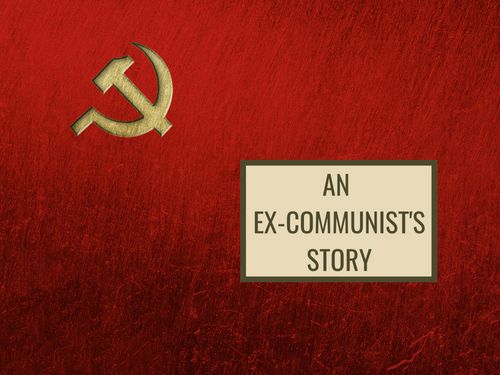Why did Arthur Koestler leave communism behind?
Sep 05, 2021 · 2 mins read
0
Share

Arthur Koestler is one of the most famous ex-communists in history. In the book The God That Failed, Koestler describes how he became a communist, how his expectations clashed with his experience, and how he left the party. Read on.
Save
Share
Koestler belonged to the middle class but his father fell on hard times during WW1 and the hyperinflation that followed. Koestler developed “a strong dislike of the obviously rich” though he was yet to become a communist.
Save
Share
Koestler joined a Berlin newspaper as a science columnist, and secretly applied to join the Communist Party(CP) of Germany. Koestler describes the experience of reading Marx and being converted: “light seems to pour from all directions...the whole universe falls into a pattern.”
Save
Share
The CP took Koestler in. Koestler wrote pro-soviet articles in the newspaper and passed on political information to the CP. But his encounters with other CP members made him uneasy. The underlying rule seemed to be: “Love your comrade, but don’t trust him an inch.”
Save
Share
Koestler tipped off the CP that the Prussian government was going to raid Nazi headquarters. The raid happened as foretold, but the CP newspaper wrote about the alliance between Nazis & the govt the next day. This frustrated Koestler, but his party superior had an explanation.
Save
Share
Facts are bourgeoisie. Koestler was told facts themselves are insufficient - they must be interpreted through the communist lens. The raid was merely a cover-up for the government’s long-running complicity. This is how reality itself was bent to fit inside the party line.
Save
Share
Politics changes art. The party reconditioned Koestler’s artistic tastes. He only admired paintings with chimneys and tractors and thought everything else was “escapist.” In music he loved the chorus above all, as it put the collective over the individual.
Save
Share
Politics changes emotion. Only two emotions were considered legitimate: the sex drive and class solidarity. The sex drive created soldiers for the revolution; the class solidarity produced the unity for the communist triumph. Everything else was “bourgeois metaphysics.”
Save
Share
Psychologist & the communist. The psychologist wants to change the sick man for the world; the communist wants to change the sick world for men. The psychologist forgets adjusting to a deformed world deforms oneself; the communist forgets hatred alone can’t lead to Utopia.
Save
Share
Bottom line. Imprisoned during the Spanish civil war, Koestler realized “man is a reality, mankind an abstraction.” Any movement that puts narrative over truth, and utility over ethics, is doomed. After he was freed, Koestler resigned from the Communist party in 1938.
Save
Share
0